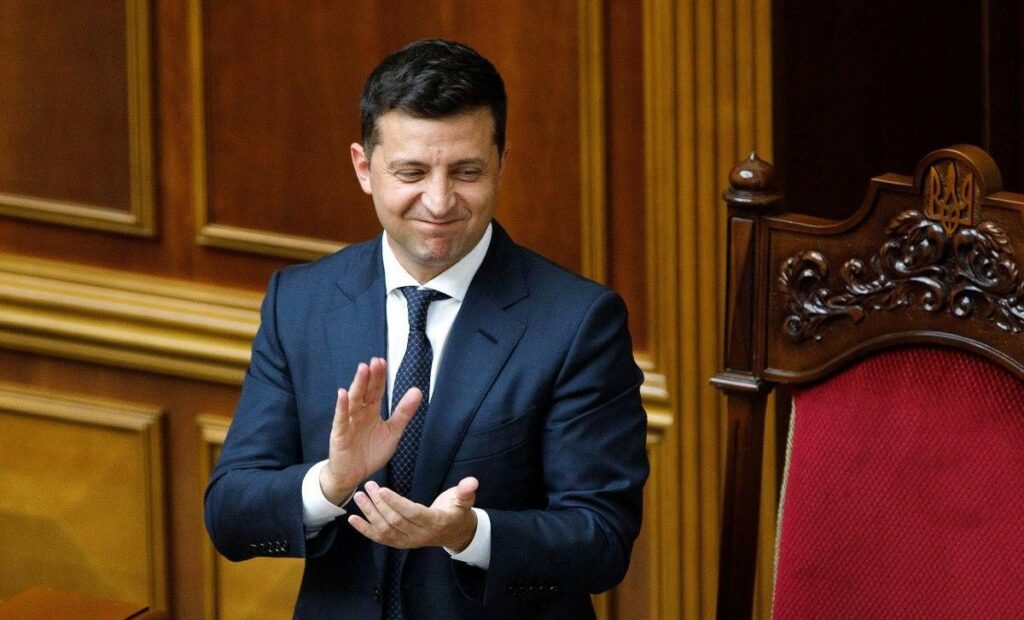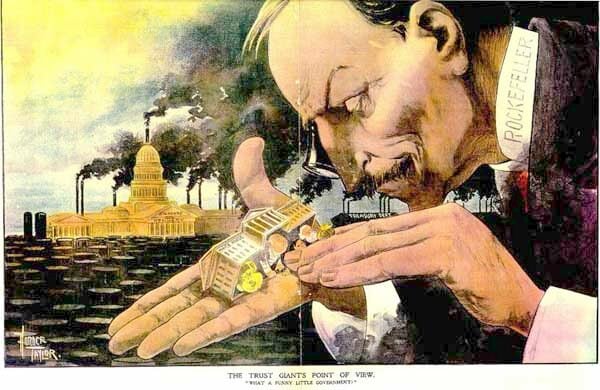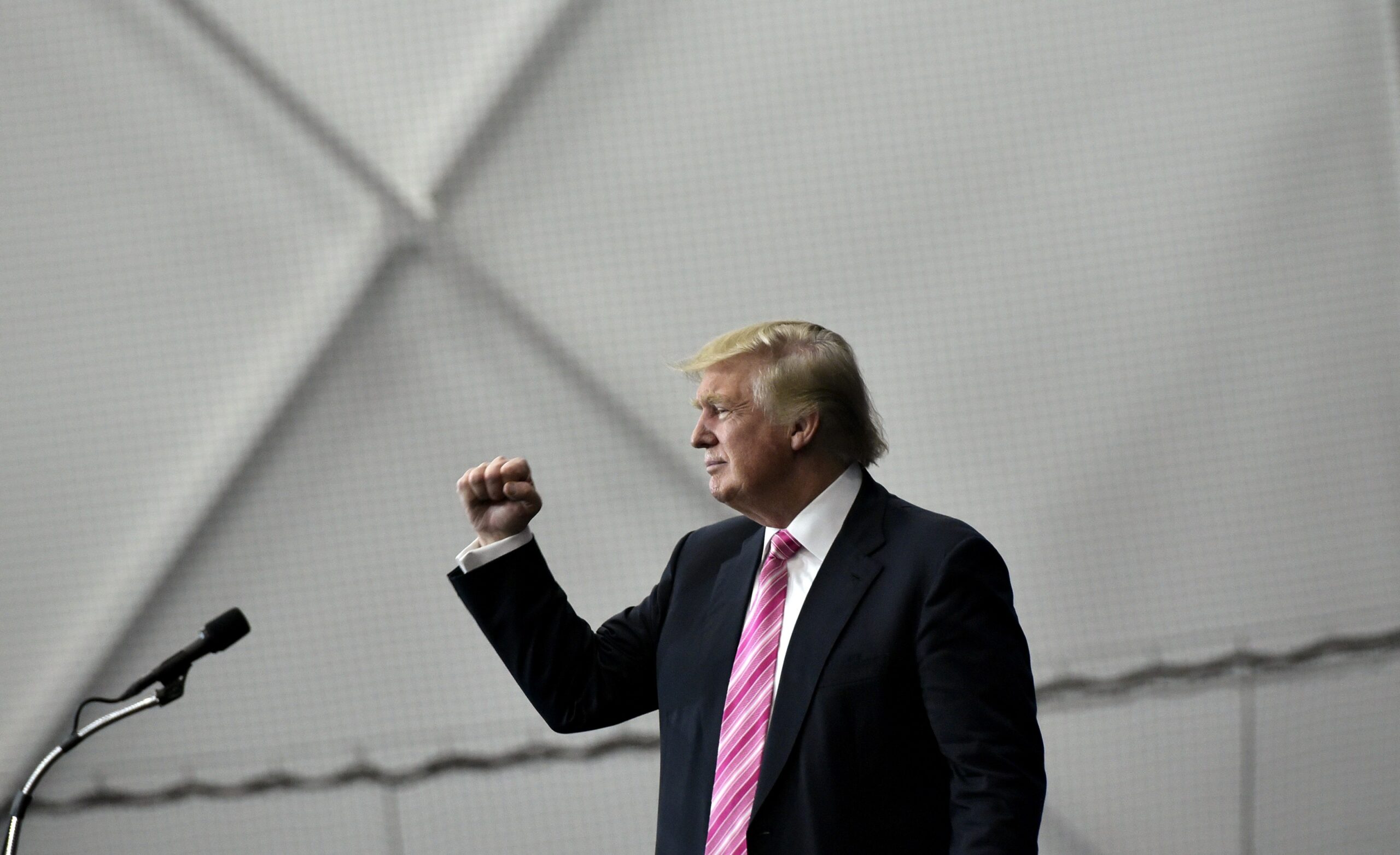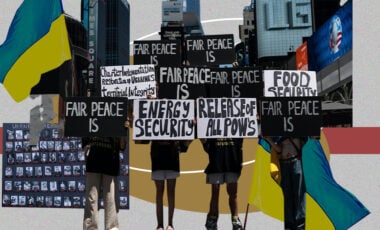De-oligarchization: how it will work in Ukraine and how it worked in the world
It first began 130 years ago. We're comparing Ukraine with the USA and China
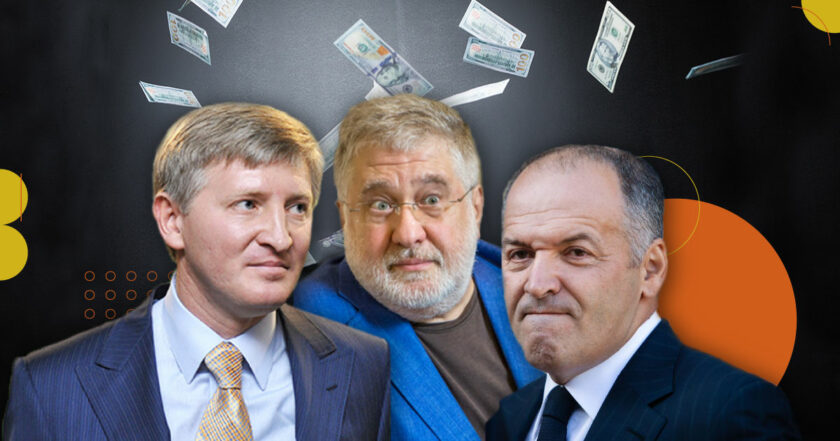
Rubryka
De-oligarchization, a concept known to humanity for about 100 years, gained its popularity during the election campaign of Theodore Roosevelt in the United States at the beginning of the 19th century. In Ukraine, the Law "On the prevention of threats to national security associated with the excessive influence of persons with significant economic or political weight in public life (oligarchs)" was adopted in September 2021. How will Zelenskyy's initiative work and what awaits Ukrainian oligarchs? We analyze what the law provides, and how de-oligarchization has worked in other countries.
What does the Ukrainian version of the law on de-oligarchization offer?
Who is an oligarch? According to the law, an oligarch is an individual who meets any three of four characteristics:
- they participate in political life;
- have a significant impact on the media;
- are the ultimate beneficial owner of the monopoly enterprise;
- the value of their assets exceeds 1,000,000 living wages. In 2021, this amount is equal to 2 billion 379 million hryvnias.
The oligarchs will be included in the register and made open. Persons who meet the requirements will be recognized as oligarchs and included in the open and free Register of oligarchs on the National Security and Defense Council's website. It's possible to exclude a person from the Register if they lack at least two criteria provided for entering this list.
Contacts with oligarchs will need to be reported. After a meeting with the oligarch or their representative, no later than the next day, one needs to submit a "Declaration of Contact." It's not required from everyone, but only from a certain list of persons, which is still quite wide. The declaration will have to be submitted by: the President of Ukraine, members of the Cabinet of Ministers, People's Deputies, the Prosecutor General and their deputies, the head of the State Security Service (SBU) and their deputies, the leadership of the National Bank of Ukraine, the Central Election Commission, the National Security and Defense Council (NSDC), heads of local state administrations, judges of the Constitutional Court of Ukraine, heads of law enforcement agencies, category "A" officials, Anti-Monopoly Committee of Ukraine leadership, military personnel with higher ranks, etc.
Any meeting or conversation, including online, will be considered a contact. In the declaration of contact, it will be necessary to indicate the date and place of the meeting or conversation, their brief content. The declarations will be public. The declaration can only be waived if the meeting takes place at court hearings or official events that are broadcast live or initiated by government agencies.
What is prohibited for oligarchs? The oligarchs will be required to submit declarations and will be limited in some rights, in particular, the oligarchs will be prohibited from:
- supporting political organizations, parties, and candidates in any way financially or in the form of services;
- being a buyer (beneficiary of the buyer) in the process of privatization of large privatization objects;
- financing any political campaign or rallies or demonstrations with political demands.
Now what?
On the world stage, the adoption of the law was perceived positively. British Ambassador to Ukraine Melinda Simmons believes that the law "on de-oligarchization" can play a role in reducing the harmful influence of private interests on the politics and economy of Ukraine. She wrote about this on Twitter:
"The law on de-oligarchization can play a role in reducing the harmful influence of private interests on the politics and economy of Ukraine. Its implementation must be legally justified and apolitical," Simmons wrote. She believes full transparency, strong antitrust measures, real competition in the energy sector, strong public service broadcasting, and, of course, judicial reform will be required for the law to work.
NSDC Secretary Danilov, who recently announced that Ukraine should switch to the Latin alphabet, seems to be glad of the new law. He announced this on his Facebook page:
"The point of choice has been passed. Ukraine must get rid of the clan-oligarchic system once and for all. It's a question of forming our country as a state and our future. Either we have a situation when a dozen people concentrate 90% of the national wealth in their hands, or we'll try to build a state of equal opportunities and equal access," the NSDC Secretary said.
Opposition political forces in parliament opposed the adoption of the law in the version in which we'll soon see it. Serhii Vlasenko, a representative of the Batkivshchyna faction, called it a fake before voting for the "anti-oligarchic" law.
"We're for the adoption of a law that fights against oligarchs, and not the one that is being offered to us now," the deputy said.
However, they can still re-vote for the law because the deputies took into account the amendments that contradict each other. It was announced by the head of the Voice faction Yaroslav Zhelezniak, having published the relevant decision of the profile committee, adopted on September 24.
"As a result of the simultaneous consideration of amendments No. 396, 398, 406, it was decided to present Article 5 in three different editions," the document says. "In this form, the law cannot be signed, first, it is necessary to correct the legal conflict."
Ukraine isn't the first country to declare war on the oligarchs. Let's look at how it worked in the United States and China, the world's strongest players in politics and economics.
What triggered the de-oligarchic campaign in the United States 130 years ago?
In 1870, American entrepreneur John Rockefeller founded Standard Oil, which later made his family the richest one in America. Rockefeller negotiated with railway companies to regulate transport prices, and Standard Oil received lower prices than competitors: it paid 10 cents for the transportation of a barrel of oil, while competitors paid 35 cents. Rockefeller's company also received income from a difference of 25 cents from each barrel. Competitors couldn't resist him, Rockefeller threw into a dilemma: union with him or extinction. Most of them chose to join Standard Oil in exchange for a stake. 10 years after its founding, thanks to numerous small and medium-sized mergers, Rockefeller had 95% of America's oil production in his hands. Having become a monopoly, Standard Oil raised prices and became the largest company in the world at that time.
Of course, the huge profits the company generated gave the owner a lot of power. Throughout his career, Rockefeller funded both the Republican and the Democratic parties at the same time, had agents in the investigative authorities who were prosecuting him. He even had "his own" President, Republican William McKinley, whose election campaign the entrepreneur financed.
De-oligarchization Law or Antitrust Law?
The attitude towards Rockefeller in American society at that time was extremely negative, so in 1890, the Republicans pushed the Sherman Act into Congress, which declared it a crime to obstruct free trade by creating a trust (monopoly) and colluding for this purpose. At its core, the law was the basis of antitrust legislation directed against the usurpation of the market by Rockefeller. Sherman was a defender of companies that bent under the weight of Rockefeller; they had to reduce the cost of petroleum products, sometimes by 30, or even 40 percent to somehow stay afloat. For example, the Sherman Act prohibited transporters from giving discounts for the transportation of oil in tanks; Standard Oil had a competitive advantage precisely because it "forced" such discounts.
But for the next 10 years after the adoption, the act didn't work and only gathered dust on the shelves. It was unpopular until Theodore Roosevelt launched his campaign. Roosevelt called the fight against monopolists, who, by the way, are later recognized as the creators of the American economy, the fight against the oligarchs, and the Sherman Act had only to be implemented.
The large-scale information war of journalists against dishonest officials and businessmen played in favor of the President, and during Roosevelt's 7.5 years in power, the Prosecutor General's Office opened 44 cases against the largest American monopolists, the most striking of which was the disbandment of Standard Oil, which was immediately divided into 30 smaller groups. Then many joked that the only thing Rockefeller lost was in buying new signs for companies. There was no large-scale redistribution of property, but the main result was the opening of opportunities for free competition and a decrease in the influence of monopolists on the authorities.
In 1914, the Sherman Act was amended by the Clayton Act to protect small businesses from the restrictions imposed by large companies. This law defined more clearly what "illegal trade restriction" was and prohibited price discrimination (granting preferences to individual buyers), as well as the sale of products to those dealers who pledged not to trade in competitors' products. In 1936, Congress passed a third antitrust law, the Robinson-Patman Act, which provided for prosecutions for harming competitors in any way.
What is the difference between American and Ukrainian oligarchs?
American oligarchs differ significantly from Ukrainian ones. Historically, the American oligarchs created the economy, enriched themselves by increasing the national wealth, and then gained influence over the government. Ukrainians, on the contrary, got the opportunity to enrich themselves through access to power and national resources. The oligarchs in Ukraine appeared as a result of the collapse of the socialist system when a significant part of state property passed into their ownership. They continue to treat the state budget as a source of enrichment. Perhaps we would've been helped more by the "de-oligarchization" campaign that was carried out in China and was aimed not at creating a healthy atmosphere of competition — antitrust laws already exist in Ukraine — but at fighting corruption, which in most cases helps oligarchs become oligarchs.
How do they fight oligarchs in China?
Earlier this year, China executed the former chairman of the board of directors of the state-owned asset management company, China Huarong Asset Management Co., Lai Xiaoming, who was found guilty. Through intermediaries or directly, Xiaoming received 1.79 billion yuan ($277 million) in exchange for assistance with promotions and transfers, as well as through projects to raise funds and related contracts. In addition, he was accused of embezzling 25.13 million yuan from the state budget. The court sentenced the oligarch and the bribe-taker to death. This is a final and non-contested decision.
A bribe of 100,000 yuan (413,000 hryvnias) is punishable by 10 years of labor in a labor camp under Chinese law; it's the minimum punishment. The maximum one is execution. It's often made indicative, televised, and publicized so that the measure is also preventive for others. At the same time, the criminal's family receives a bill of 10 yuan for the spent bullet.
More democratic methods of fighting corruption in China are rotation of personnel in all government bodies, strengthening control over the provincial level of the party and state apparatus, limiting the excessive independence and political weight of the provincial elites, which were placed in tougher conditions to follow the line of the center.
Even though the Chinese government has more than 1,200 anti-corruption laws, regulations, and directives, agencies, and organizations, their performance falls short of expectations. The chances of a corrupt official going to jail are less than 3%. Officials still can amass tens of millions of yuan illegally. The main members of the scandals are concentrated in the main public sectors, and the financial consequences of corruption reach 86 billion dollars annually.
Over 30 years of reforms, about a million employees of the party and state apparatus have been prosecuted for bribery. However, even despite the public executions, it hasn't been possible to completely eradicate cases of collusion between businessmen and officials on the "your power is my money" principle. The anti-corruption campaign in China may seem successful only on a superficial glance, the regular executions of thieving officials may intimidate others, but these are more symbolic gestures that don't touch the roots of the problem. Anti-corruption measures are rather mild. According to official figures, no more than six percent of those convicted of corruption are punished, and for a successful fight against corruption, immediate and severe punishment is required, as well as government measures that limit the possibilities of embezzlement and receiving bribes. In today's China, corruption is fueled by remnants of the old command-and-control system, as much still depends on the decisions of the local, middle, and senior leadership. This system allows officials to say "yes" or "no" when solving a lot of issues and take bribes for a positive decision.


